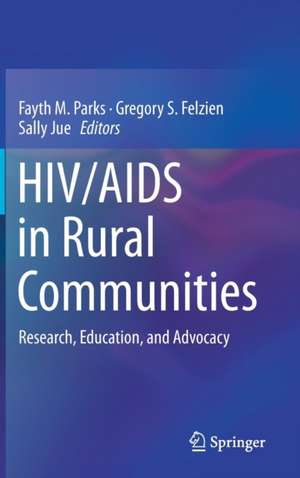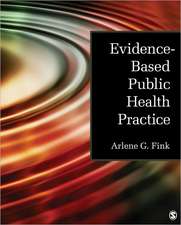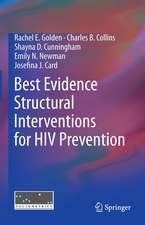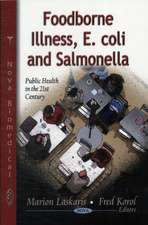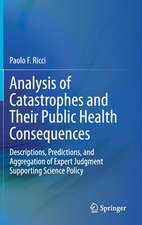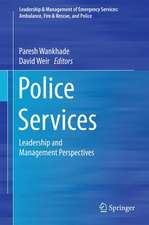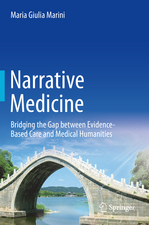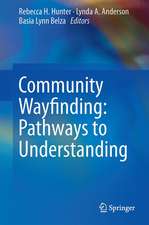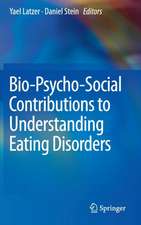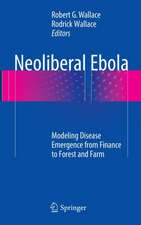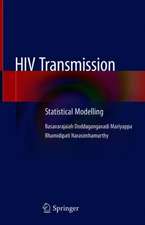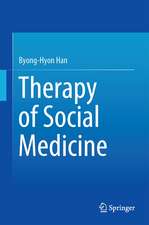HIV/AIDS in Rural Communities: Research, Education, and Advocacy
Editat de Fayth M. Parks, Gregory S. Felzien, Sally Jueen Limba Engleză Hardback – 24 iul 2017
Featured topics include:
- Case study: Georgia’s rural vs. non-rural populations
- HIV medications: how they work and why they fail
- Pediatric/adolescent HIV: legal and ethical issues
- Our experience: HIV-positive African-American women in the Deep South
- Learning to age successfully with HIV
| Toate formatele și edițiile | Preț | Express |
|---|---|---|
| Paperback (1) | 424.87 lei 39-44 zile | |
| Springer International Publishing – 2 aug 2018 | 424.87 lei 39-44 zile | |
| Hardback (1) | 653.00 lei 6-8 săpt. | |
| Springer International Publishing – 24 iul 2017 | 653.00 lei 6-8 săpt. |
Preț: 653.00 lei
Preț vechi: 687.36 lei
-5% Nou
Puncte Express: 980
Preț estimativ în valută:
124.95€ • 130.73$ • 103.80£
124.95€ • 130.73$ • 103.80£
Carte tipărită la comandă
Livrare economică 03-17 aprilie
Preluare comenzi: 021 569.72.76
Specificații
ISBN-13: 9783319562384
ISBN-10: 331956238X
Pagini: 270
Ilustrații: XV, 157 p. 15 illus., 9 illus. in color.
Dimensiuni: 155 x 235 x 16 mm
Greutate: 0.43 kg
Ediția:1st ed. 2017
Editura: Springer International Publishing
Colecția Springer
Locul publicării:Cham, Switzerland
ISBN-10: 331956238X
Pagini: 270
Ilustrații: XV, 157 p. 15 illus., 9 illus. in color.
Dimensiuni: 155 x 235 x 16 mm
Greutate: 0.43 kg
Ediția:1st ed. 2017
Editura: Springer International Publishing
Colecția Springer
Locul publicării:Cham, Switzerland
Cuprins
The Rural HIV Epidemic: Using AIDsVu to Understand Where You Live.-Case Study: Georgia’s Rural vs. Non-Rural Populations.- More Than Our Share: The Unchecked HIV/AIDS Crisis in Mississippi.- Sudden Plague: A Rural Indiana Community’s HIV Outbreak.- HIV/AIDS: The Last 30-Plus Years.- HIV Prevention: TasP, PrEP, PEP, and nPEP.- Pediatric/Adolescent HIV: Legal and Ethical issues.- R.E.S.T.A.R.T.: An Approach to Re-Engage and Treat HIV in Rural Tennessee.-
Bridging the Mental Health Gap Across the HIV Continuum of Care.- Managing Depression and Suicidality in Clients Living With HIV.- Acceptance and Commitment Principles in the Engagement and Treatment of PLWHA.- A Shelter-Based Model of Mental Health Care for the Homeless.-A Rural Health Clinic’s Approach to Building a Patient-Centered Medical Home.- Women on Maintaining Health and Nutrition (W.O.M.E.N.).- HIV Prevention Working With Rural African American Youth.- Intersecting HIV Prevention Practice and Truth Among MSM.- Learning to Age Successfully With HIV.- Powers of the Quilt: Fostering HIV/AIDS Literacy in and Through the Arts.
Notă biografică
Fayth M. Parks, PhD, is an associate professor and licensed psychologist in the Department of Leadership, Technology, and Human Development at Georgia Southern University. From 2010-2012, she was an HIV/AIDS trainer through the American Psychological Association’s (APA) HIV Office for Psychology Education (HOPE). In 2012, Dr. Parks was inspired by the HOPE training program to found the Rural HIV Research and Training Conference held annually in Savannah, Georgia. She serves on the Steering Committee for the Southeast AIDS Education and Training Center (SE AETC). She is also chair of the APA Ad Hoc Committee on Psychology and AIDS (COPA). Dr. Parks has written and lectured extensively on cultural diversity in health and illness, healing practices, and traditional medicine. In 2009, she was the David B. Larson Fellow in Health and Spirituality at The John W. Kluge Center of the Library of Congress.
Gregory S. Felzien, MD, AAHIVS, isboard certified in both internal medicine and infectious diseases and also certified as an American Academy of HIV specialist. He is medical advisor within the Georgia Department of Public Health’s Division of Health Protection/IDI-HIV. As part of this position, Dr. Felzien continues to care for and focus on the needs of rural HIV positive individuals throughout the state. Dr. Felzien practices infectious diseases with an emphasis on HIV, Tb, and Hepatitis. He is actively involved in the rural community through coordinating HIV awareness and education and writing and speaking at the local, state, and national level. He is also as a member of the provider advisory board for the CDC’s HIV medical monitoring program and Steering Committee for the Southeast AIDS Education and Training Center (SE AETC).
Sally Jue, MSW, is former manager of AIDS Project Los Angeles. During her time with the AIDS Project Los Angeles, Ms. Jue created and managed one of the first HIV mental health programs in the United States. She and her staff created innovative clinical treatment programs for clients with co-occurring disorders as well as volunteer peer support programs. In addition to overseeing staff, peer, professional volunteers and interns, Ms. Jue was also active in developing partnerships that brought together different organizations and communities to advocate for improved access to services for people affected by HIV. Ms. Jue is a founder and former chair of the LA County HIV Asian Pacific Caucus, a former consultant for the SAMHSA Mental Health HIV Services Collaborative, and former appointee to the LA County Department of Health Services’ Cultural and Linguistic Competency Standards Work Group.
Gregory S. Felzien, MD, AAHIVS, isboard certified in both internal medicine and infectious diseases and also certified as an American Academy of HIV specialist. He is medical advisor within the Georgia Department of Public Health’s Division of Health Protection/IDI-HIV. As part of this position, Dr. Felzien continues to care for and focus on the needs of rural HIV positive individuals throughout the state. Dr. Felzien practices infectious diseases with an emphasis on HIV, Tb, and Hepatitis. He is actively involved in the rural community through coordinating HIV awareness and education and writing and speaking at the local, state, and national level. He is also as a member of the provider advisory board for the CDC’s HIV medical monitoring program and Steering Committee for the Southeast AIDS Education and Training Center (SE AETC).
Sally Jue, MSW, is former manager of AIDS Project Los Angeles. During her time with the AIDS Project Los Angeles, Ms. Jue created and managed one of the first HIV mental health programs in the United States. She and her staff created innovative clinical treatment programs for clients with co-occurring disorders as well as volunteer peer support programs. In addition to overseeing staff, peer, professional volunteers and interns, Ms. Jue was also active in developing partnerships that brought together different organizations and communities to advocate for improved access to services for people affected by HIV. Ms. Jue is a founder and former chair of the LA County HIV Asian Pacific Caucus, a former consultant for the SAMHSA Mental Health HIV Services Collaborative, and former appointee to the LA County Department of Health Services’ Cultural and Linguistic Competency Standards Work Group.
Textul de pe ultima copertă
This wide-ranging volume reviews the experience and treatment of HIV/AIDS in rural America at the clinical, care system, community, and individual levels. Rural HIV-related phenomena are explored within healthcare contexts (physician shortages, treatment disparities) and the social environment (stigma, the opioid epidemic), and contrasted with urban frames of reference. Contributors present latest findings on HIV medications, best practices, and innovative opportunities for improving care and care settings, plus invaluable first-person perspective on the intersectionality of patient subpopulations. These chapters offer both seasoned and training practitioners a thorough grounding in the unique challenges of providing appropriate and effective services in the region.
Featured topics include:
Featured topics include:
- Case study: Georgia’s rural vs. non-rural populations
- HIV medications: how they work and why they fail
- Pediatric/adolescent HIV: legal and ethical issues
- Our experience: HIV-positive African-American women in the Deep South
- Learning to age successfully with HIV
Caracteristici
Clarifies key features of the HIV/AIDS epidemic in rural communities Highlights key challenges and barriers of HIV service delivery Identifies tools for evidence-based practice of HIV prevention, intervention, and care Describes addiction and other mental health issues Highlights advocacy and best practices for fighting HIV/AIDS denial and stigma Addresses cultural competency, ethical issues, and confidentiality Integrates case studies to make HIV/AIDS training more relevant Includes supplementary material: sn.pub/extras
